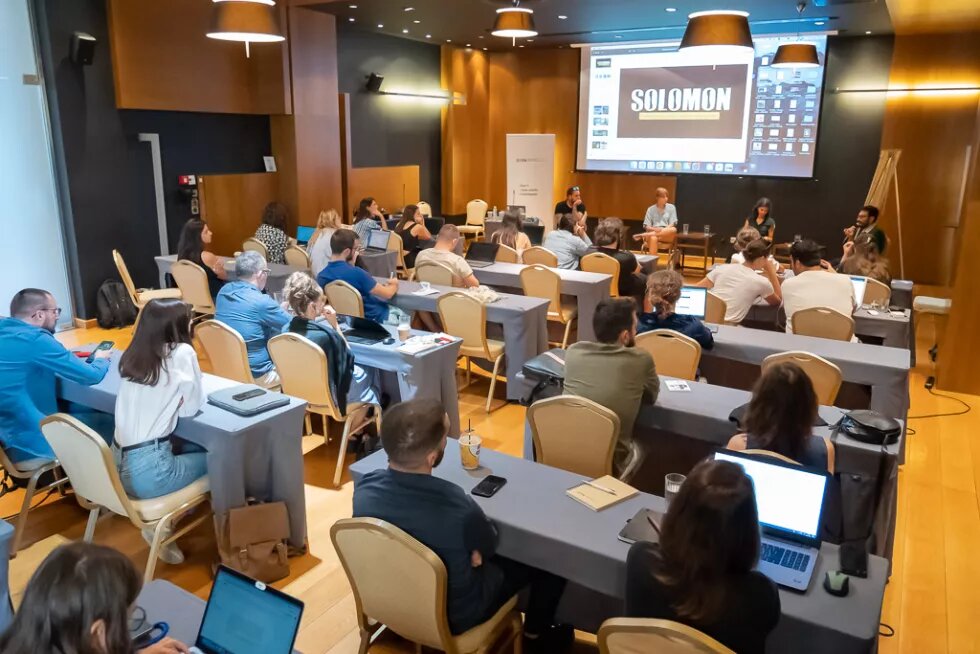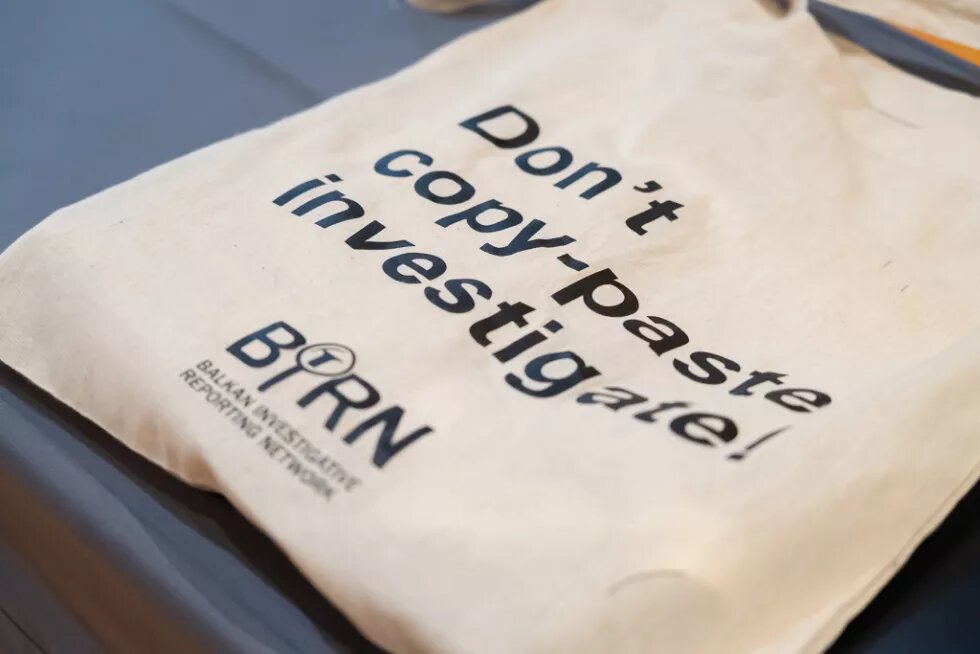
How are the topics of migration and asylum reported about in Greek mainstream and independent media? What effects does media coverage have on the public debate and on migration policies and vice versa? What are specific challenges journalists have to face, when investigating and reporting on migration-related issues in Greece?

These and many more timely questions around the intersection of media/journalism and migration in Greece were discussed at our joint panel discussion on Investigating the Migration Policy Crisis in Greece, which we co-organised with the Balkan Investigative Reporting Network (BIRN).
BIRN was holding its 13th summer school on investigative journalism in Thessaloniki this summer. On this occasion, we co-organised this panel to discuss the complex political context in which journalists focused on migration operate in Greece.
Moderated by Eleni Stamatoukou, who works with BIRN and who is an experienced journalist herself, we had a fascinating discussion together with Stavros Malichudis and Apostolos Fotiadis, from the Greek independent media outlet “We Are Solomon” and myself, representing Heinrich Boell Stiftung’s European migration programme.
We discussed challenges, which journalists covering and especially investigating migration in Greece have to cope with on a daily basis ranging from breaches of privacy, risks of surveillance and other safety risks to themselves and their – often vulnerable – sources and various forms of criminalisation.
Both Stavros Malichoudis and Apostolos Fotiadis, as well as the moderator have experienced many of those obstacles themselves, while investigating issues around migration and people on the move. As a political foundation, we have for some time tried to better understand the correlation between reporting and language used and a perpetuation of stereotypes and biased discourses and ultimately even bad policies. For us it is clear that media indeed does play a crucial role in informing the public about refugees and migrants and for instance their reasons to flee their home country.
A study, which we commissioned previously, shows that in the Greek context the overall image generated by news and media is biased as in mostly representing official sources and their positions and rarely presenting refugees’ and migrants’ voices. Also the use of language is rather specific, focusing on border security a lot, but not so much on Human Security. Especially in the context of migration, the use of right terminology is of huge importance, as also stated by Stavros Malichudis. When someone is wrongly called “illegal” migrant, rather than asylum seeker for example, this already has consequences for how a person is seen and hence treated.
Therefore, all panellists agreed to the need for journalists to be particularly precise and follow the rules of ethical and professional journalism, when covering such a politicised topic.
Given the overall shift towards more hostility against refugees in Greece, the work of independent journalists going the extra mile to cover stories unheard is even more important. Yet, the discussion made clear that this work is carried out under huge pressure. Apostolos Fotiadis pointed out that it is also important to not only look at migration and people on the move, once they knock at our door, but to ask for and try to uncover the structural global reasons for flight and expulsion.
Overall, the panel showed how complex the issues around migration and journalism covering migration are, yet how important it is that engaged journalists share their experiences, especially for those rather new in the field, to reflect and to ideally learn from.







